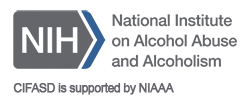Available data from Phase 2 were collected across six sites:
(1) Center for Behavioral Teratology, San Diego State University, San Diego, CA;
(2) Emory University, Atlanta, GA;
(3) the University of California, Los Angeles, Los Angeles, CA;
(4) University of New Mexico, Albuquerque, NM;
(5) Seven Northern Plains communities, including six Indian reservations; and
(6) Omni-Net locations in Ukraine: the Rivne Diagnostic Center and the Khmelnytsky Perinatal Center in Rivne and Khmelnytsky, Ukraine.
Subject recruitment varied between the sites, and subject population was racially and ethnically diverse.
Data for Neurobehavior, Dysmorphology, Demographics and Brain Volume were collected from sites 1-5 for children between the ages of 8-16 years. 3D Facial Imaging and Genetic data are also available for children from sites 1-3. Data from a longitudinal study were collected from site 6 for 350 moderately to heavily alcohol-exposed pregnant women and approximately 350 low or unexposed women.
Pregnancies were followed with serial ultrasounds and maternal blood samples were collected and analyzed for various nutrients and markers of oxidative stress and inflammation. Live born infants were given a dysmorphology exam, facial imaging, and neurobehavioral testing.
Phase 2 Projects














































